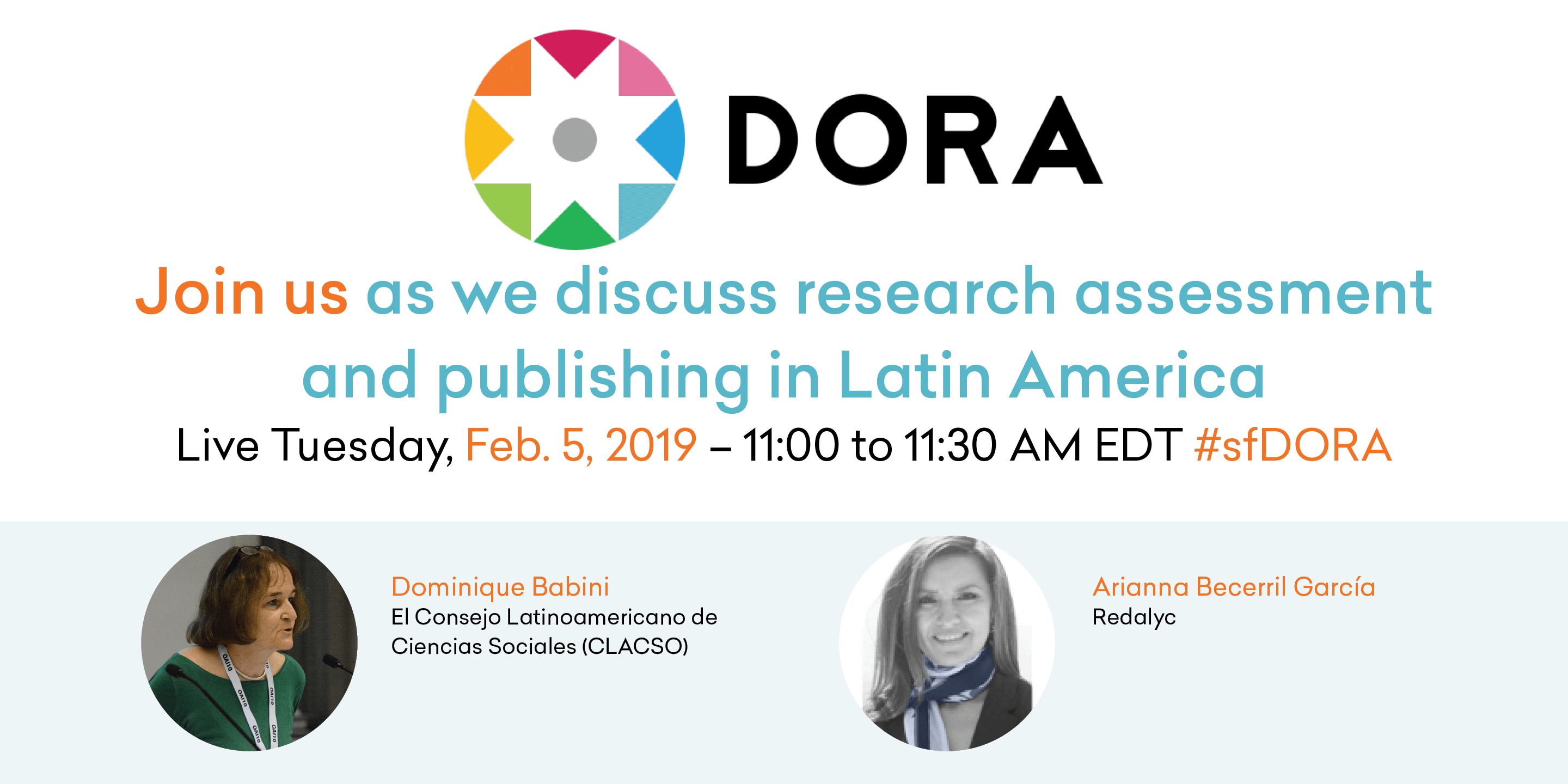
Across the world, institutions and funders experience similar challenges in hiring, promotion, and funding decisions. How do we define research quality? What criteria should be included in researcher assessments? While some challenges might be shared, the academic ecosystem can vary from region to region. To better understand the research landscape in Latin America, we interviewed Dr. Dominique Babini, Open Access Advisor for the Latin American Council of Social Sciences (CLACSO) and DORA Advisory Board Member, and Dr. Arianna Becerril-García, Executive Director of Redalyc and Professor at the Autonomous University of the State of Mexico on Tuesday February 5, 2019.
Unique publishing infrastructure
Compared with the United States and other parts of the world, Latin America has a unique noncommercial publishing infrastructure. Becerril-García explained that neither authors nor readers are asked to pay for research articles. Instead, it is the academic institutions that finance scholarly journals. The investment made by academic institutions is considered to be mutually beneficial because each journal is published open access. This informal university cooperative was established years before open access became a formalized movement and got its label from the Budapest declaration in 2002.
CLACSO and Redalyc fit in the publishing architecture as indexing platforms for scholarly journals and books. They complement the efforts of academic journals, which would normally be filled by commercial publishers, by helping increase the visibility, interoperability, and discoverability of research.
"Every institution supports journals that are driven by their own faculty members and the content of each journal is available in #OA. so, each institution’s investment in journals benefits all the other institutions" @ariannabec #sfDORA @DORAssessment
— Redalyc (@Redalyc) February 5, 2019
Incentives are misaligned
“While science policy promotes a model of researcher who is committed to knowledge transfer and social commitment,” Babini says, “evaluation practices encourage a classic academic profile because they use the impact factor and citations.” The misuse of metrics is not just a problem for researchers working toward tenure; institutions also depend on traditional research metrics for university rankings. But, international institutional research assessment systems can be biased against different locations. This is true for Latin America, where only a small percentage of publications are represented in subscription-based scientific citation indexing services.
Societal impacts of research
Becerril-García notes, “Many journals play a significant role in regional academic communication in Latin America. The research they publish has profound societal impacts that improve quality of life in the local community.” While societal impacts are highly valued in many disciplines, they do not translate into traditional citation-based metrics. Babini emphasizes that industry use of research results in many areas, including agriculture, healthcare, and socioeconomics, can be just as important as citations and peer opinions. To help, a new community driven initiative in Latin America called, AmeliCA, created a working group to develop relevant and fair metrics for researchers, science, and open access. Becerril-García believes that a first step could be to recognize the differences between disciplines. What works for research assessment in agriculture may not translate to other research areas like history.
In many areas as agriculture, health, socio-economic issues, among other development challenges, the stakeholders opinion and use of research results is just as important as opinion of peers and citations by peers.
— Dominique Babini (@dominiquebabini) February 6, 2019
Adjusting assessment to support regional research
Societal impacts are an important research outcome in Latin America. How can hiring, promotion, and funding procedures support research that tackles local and regional challenges? While CLACSO is able to create incentives for its grants, Babini noted that the policies of national funders have a significant amount of influence in the region. One thing she believes would help is recognition of the open access indicators that have been developed over the last 20 years in Latin America.
